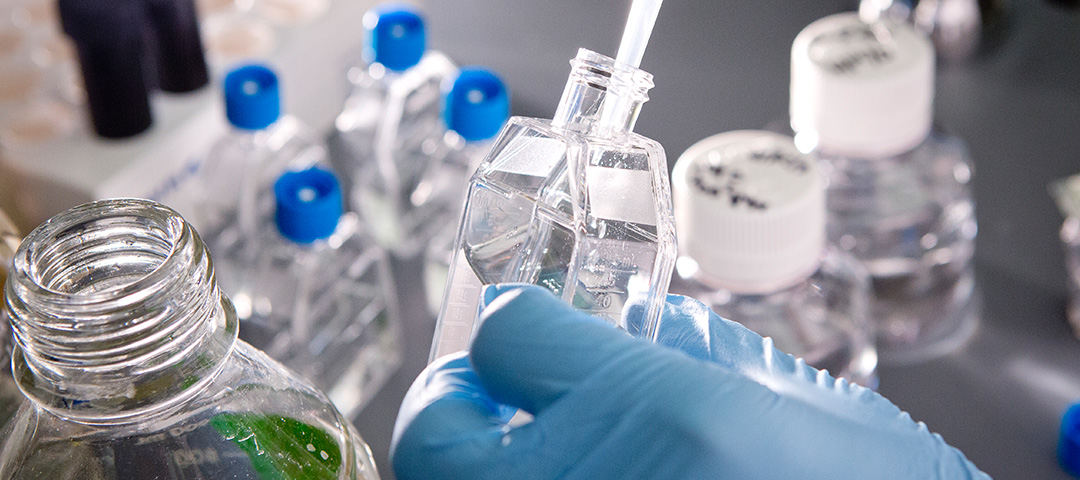3 Bullets
- Dengue virus is the most prevalent mosquito-borne virus worldwide, infecting an estimated 400 million people per year and causing about 25,000 deaths.
- It’s necessary to understand the molecular mechanisms of dengue replication in order to develop an effective treatment.
- Researchers at ISB and Seattle BioMed developed a novel approach for identifying host proteins that associate with dengue replication machinery.
By Thurston Herricks
Dengue virus (DENV) infects approximately 400 million people annually and causes about 25,000 deaths per year. While DENV is endemic in sub-Saharan Africa, Southeast Asia, Central and South America, and the southern United States, there currently are no vaccines or drugs approved against it. Traditional routes for vaccine development have been hampered by the existence of four distinct variations of DENV, each of which can produce the full spectrum of disease. Moreover, a vaccine must effectively protect against all four types of DENV, because partial protection could increase the chance of severe disease due to the phenomenon known as antibody-dependent enhancement of infection. In order to develop new antiviral treatments, the molecular mechanisms of how DENV infects and multiplies within host cells must be well understood.
DENV is an RNA virus that remodels cytoplasmic membranes into vesicular structures that house the viral replicative machinery. These structures shield the replication process from host antiviral sensors and also enable compartmentalization. The proteins involved in replication are considered to be attractive therapeutic targets.
Lindsay Carpp, a postdoc in John Aitchison’s lab at ISB and Seattle BioMed, has been investigating how DENV – which produces only 10 individual types of proteins during infection – interacts with host cell proteins to form these replication complexes. To identify the specific protein interactions that mediate the replication complex biogenesis, Dr. Carpp developed a novel approach that combines strategic isotopic labeling to eliminate post-lysis contaminants, immunoaffinity purifications of tagged DENV proteins from infected cells, and shotgun mass spectrometry to identify virus-host protein interactions.
Identifying these virus-host protein-protein interactions will potentially improve our mechanistic understanding of how DENV replicates within host cells, and may also inform therapeutic and vaccine development against this important pathogen.
– Lindsay Carpp contributed to this report.
Title: Quantitative proteomic analysis of host-virus interactions reveals a role for GBF1 in dengue infection
Journal: Molecular & Cellular Proteomics
Authors: Lindsay N. Carpp, Richard S. Rogers, Robert L. Moritz, John D. Aitchison
Link: (epub in advance of print) http://www.mcponline.org/content/early/2014/05/22/mcp.M114.038984



 moritz.isbscience.org/research/new-approach-identifying-deadly-dengue-virus-multiplies/
moritz.isbscience.org/research/new-approach-identifying-deadly-dengue-virus-multiplies/